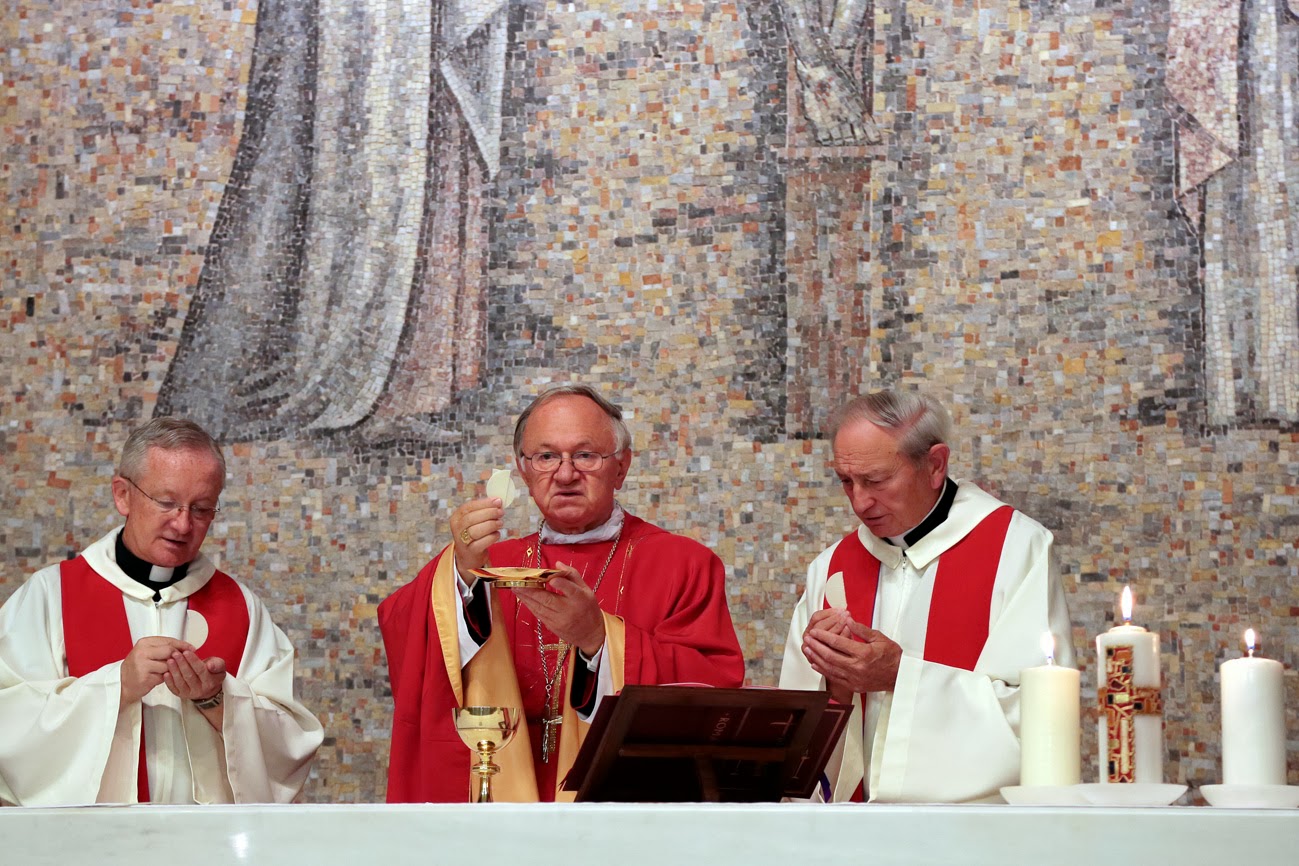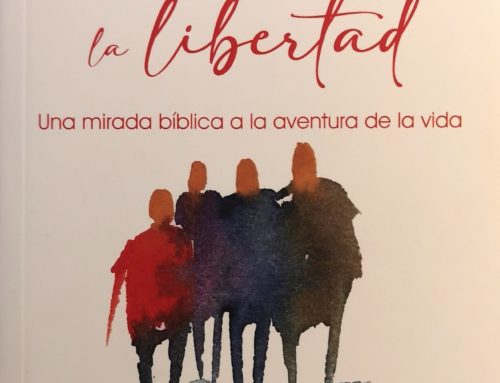The Eucharist in John 6:53-58
In the narrative of the Last Supper in John’s Gospel (Chapter 13) we do not get the detail of the institution of the Eucharist. The accent falls there on mutual love, the washing of the feet, the impending betrayal of Judas, and the forecasting of Peter’s infidelity. It is in the synagogue at Capernaum (Chapter six) that the reference is made to the Eucharist, and its meaning developed. This account is very like what we get from St Paul at 1 Cor 11: 7ff. It was perfectly clear for Paul, following Jesus, that the Eucharist was at the heart of the Christian community life and worship. The harmonious atmosphere intended from a mix of people from such various backgrounds would manifest the unity of the human family that Christ had died for, and that Paul had labored to foster.
From the beginning the Eucharist was central. Christians knew they were Christians and identified publicly with the faith and with each other precisely when they participated in what we call The Mass. There they learned over and over again Christian ideals in a context where these were regularly honoured. In the famous letter to the emperor Trajan (98-117 A.D.) Pliny the Younger ( 61.-c.113 A.D.) details the practices of early Christians (sections 7-10): he says that they meet on a certain day before light where they gather and sing hymns to Christ as to a god. They all bind themselves by oath, “not to some crimes”, as though that is what Pliny would have expected; rather, they pledge not to commit any crimes such as fraud, theft, or adultery, and subsequently share a meal of “ordinary and innocent food”. It was commitment to a way of life. (Cf. A Sherwin White, The Letter of Pliny: A Historical and Social Commentary, Oxford Univ. Press, 1966, p.710). Pliny still persecuted them.
The Picture in John 6
Jesus in the synagogue discourse declares that he draws life from the Father. He lives from him and with him, totally identified with the Father in everything he says and does and is. Such is the identity of believers who put their faith in Christ and participate in the Eucharist.
He was answering the objection made by those who did not believe in him when they asked how this “fellow”- a disprizing word in Greek for some pretentious person of no importance- how he can give us his flesh to eat? His answer told them that they had no life at all unless they accepted him in the way his heavenly Father gave life to Jesus himself. All the marvellous things he was able to do were possible only because of his intimate relationship with his Father. Jesus was a real man, a full human being- we were told in the Prologue of the Gospel (1:14) that the Word was made flesh and pitched his tent among us. This is now being unfolded further in the Eucharistic discourse. Participate with faith in the sacrament and that is life giving- food and drink are life giving, just as if one does not eat ordinary food then natural death is inevitable.
Meals
In our ordinary experience the most important occasions in life are celebrated frequently by a meal shared with others of like mind; it is a sign of solidarity and affection. Whenever possible meals are shared. And those that are most important are shared with all that is necessary to accentuate their special nature. When Jesus presented his teaching, while accentuating the body and blood through symbols, he was also accentuating that he was speaking in the first person. We recall another example of this Hebrew idiom when Jesus said to Peter: flesh and blood has not revealed this to you- no human being did (Mt 16:18ff.). Now he is drawing major attention to the fact that he was offering his whole personal life as a sacrifice. No Christian celebrating the Eucharist in John’s community would have missed the force of this symbolism. They would probably have recalled St.Mark’s account that Jesus came to give his life as a ransom for many (Mk 10:45), and when breaking the bread it says ‘this is my body….this is my blood of the covenant which is poured out for many’ (Mk 14:24). In John’s gospel today we read: ‘the bread which I will give ….is my flesh my flesh for the life of the world’ (6:51c).
The Mass
The centuries have continued to form the ritual of the Mass as we now have it. We are accustomed to describing our communal participation in it together as ‘offering’ Mass or ‘celebrating’ the Eucharist,: Pray my sisters and brothers, that my sacrifice and yours may be acceptable to God the almighty Father. One can nearly always guess when someone is from outside the tradition when he or she describes the enactment of the ritual with different words from ‘celebrate’ or ‘offer’. Journalists often write that a priest ‘performed’ the Mass, or that the pope ‘held the Mass’, not noticing the congregational presence and participation. The community aspect of the celebration is so important that according to canon law the priest is not normally permitted to offer Mass on his own without the presence of a congregation, except when there is a very good reason for it (Can 906). It is a communal celebration. Nor is the priest supposed to change the words of the ritual to improve on them. The reason for all the caution is to make sure that the meaning of the Mass as sacrament and sacrifice is expressive of the community faith.
Conclusion
We are going through a time when in our world many people cannot get to Mass regularly. Many believers in mission countries have experienced this for a long time. In times of persecution those who do manage to have a priest available are also very courageous in risking so much for celebrating their faith together. Clearly a certain flexibility of ritual is often demanded to accommodate the demanding needs of those who identify with the Church and all that it stands for. Here in our chapel we are very privileged and grateful to each other for the possibility of celebrating together faithfully. Long may it continue.
A happy Sunday to you all. Amen.
Rev Richard J.Taylor.
Spiritual Advisor, Matercare International
Boarbank Hall, Cumbria, UK
……………
Picture: Presides over Msgr Zygmunt Zimowski (+). Fr Taylor at right








